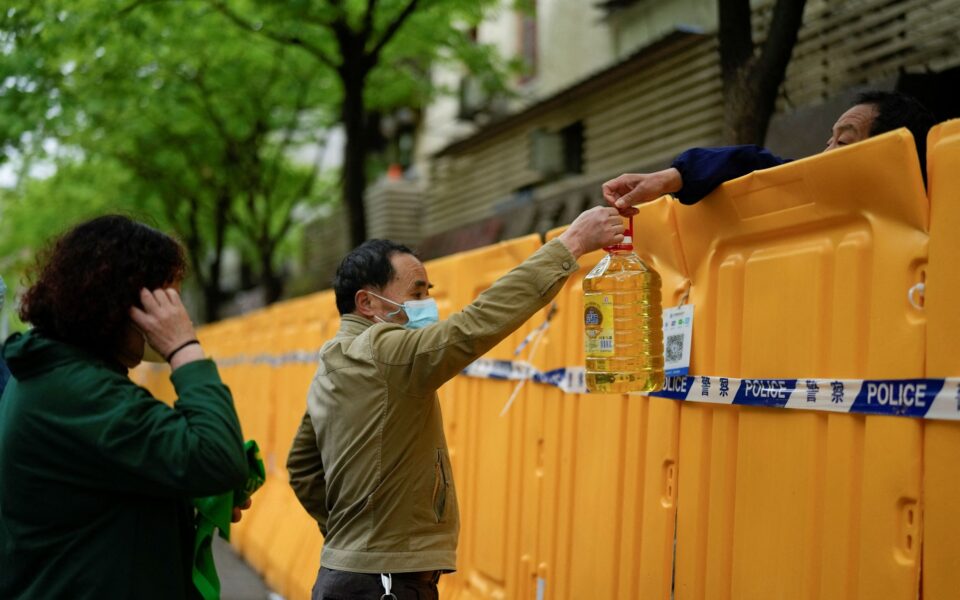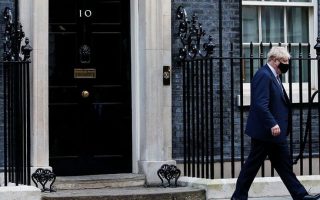China vs Covid, and its collateral damage

China’s leaders have a story to tell. The Communist Party, they say, leads the nation on behalf of the Chinese people, and it does so far more effectively than American and European leaders govern their own countries. The so-called Western democracies are plagued with greed, arrogance and dysfunction.
Americans, who can’t even agree on the legitimacy of their current president, want to tell us what’s best for our people. Europeans, who have built their prosperity atop the enslavement of their former colonies, want to lecture us on human rights.
There is no better current example of the clear superiority of China’s political system, its leaders argue, than the lifesaving benefits of its “zero-Covid” policy. According to its official statistics, Covid has killed fewer than 5,000 Chinese citizens in a nation of 1.4 billion people. Yes, the zero-Covid policy has imposed lockdowns and forced testing on tens of millions of people, but are those people now less “free” than the nearly 1 million Americans that Covid has killed? American and European leaders, they say, protect their citizens’ privacy, while China’s leaders protect their people’s lives.
Western officials will point out that the limits China places on freedom of speech and information allow Chinese officials to hide the true scale of their country’s problems, in part to evade responsibility for their own mistakes. They will also remind the world that Covid first appeared in China’s Hunan province, and that when Chinese doctors first began to publicly discuss the risks it posed, China’s public security service summoned Dr Li Wenliang to its offices and accused him of “making false comments” and disturbing “social order.” The decision by Chinese officials to hide the truth about the coronavirus and the dangers it posed ensured its spread around the world. After Dr Li’s death touched off a firestorm in Chinese social media, the state declared him a hero.
This political backdrop is critical for understanding the political stakes – and potential Chinese and global economic repercussions – in China’s current battle with Covid-19. The scale of this battle has no historical precedent. The cities of Jilin (population 3.6 million), Tangshan (7.7 million), Changchun (9 million), Xuzhou (9 million) have all seen recent lockdowns. But it’s the near-total shutdown of Shanghai, China’s financial capital and largest city, with a population of more than 25 million people, that has drawn the most international attention.
The number of Chinese citizens now infected with the Omicron variant is on the rise. Because so few Chinese people have been infected, few have developed antibodies to protect them. And China has yet to develop vaccines with the high success rates of the innovative mRNA vaccines used in the United States and Europe. In response, the Chinese government has confined more than 50 million people to their homes without an effective plan to provide them with food and medical care for other issues. The Shanghai lockdown has already lasted longer than the state first promised.
China has relaxed its zero-Covid policy in small ways, but it could do far more. For example, it could allow Chinese state media to inform the public that the Omicron variant is less dangerous than previous Covid variants and less likely to hospitalize those who are infected. It could accept more infections, and even more deaths, in order to lessen the public health harm and economic damage inflicted by the confinement of far larger numbers of people. But to do these things would be to acknowledge that the government must change course and to allow citizens to wonder about the infallibility of their leaders’ judgment.
This dilemma comes at a politically awkward moment. Later this year, China’s Communist Party is expected to break with past practice to grant Xi Jinping a third term as the nation’s supreme leader. China’s economy has been slowing for years as rising wages have undermined the low-wage manufacturing model that created the conditions for China’s historic surge from poverty to the world’s largest-ever middle class. The damage Covid has done elsewhere has also slowed the global economy that has fueled China’s rise. Russia’s war in Ukraine has created still more economic uncertainty. Now China’s own zero-Covid policy has led to lockdowns that will push growth lower still – and the impact will be felt around the world.
It’s a reminder that arguments about the relative merits of Chinese and Western political systems ignore a common problem: Economic fallout and potential political turmoil, like Covid-19, don’t care much about borders.
Ian Bremmer is the president of Eurasia Group and GZERO Media and author of “Us vs Them: The Failure of Globalism.”





